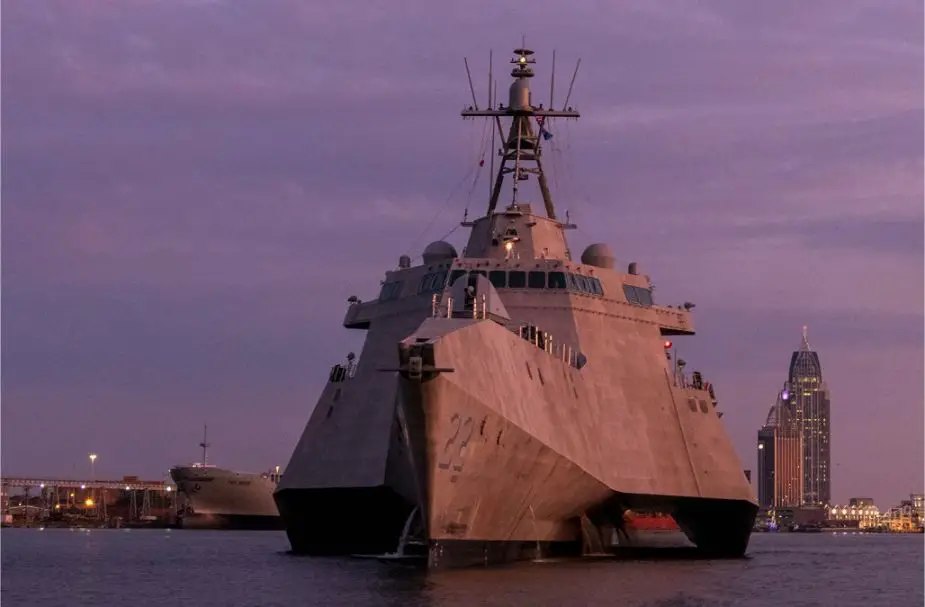Breaking news
Acceptance trials U.S. Navy future Independence-class littoral combat ship USS Kansas City LCS 22.
The future Independence-class littoral combat ship USS Kansas City (LCS 22) successfully concluded acceptance trials in the Gulf of Mexico after a series of in-port and underway demonstrations, the U.S. Navy announced on October 31, 2019.
 Future San Diego-based USS Kansas City completes successful acceptance trials. (Picture source Twitter account US pacific Fleet)
Future San Diego-based USS Kansas City completes successful acceptance trials. (Picture source Twitter account US pacific Fleet)
Acceptance trials are the last significant milestone before the ship’s planned delivery to the Navy in early December. During trials, the Navy conducted comprehensive tests of LCS 22’s systems, which spanned multiple functional areas essential to a ship being able to perform at sea — main propulsion, auxiliaries and electrical systems. The ship also performed demonstrations of its capability, including a full-power demonstration, steering and quick reversal, anchor drop test and combat system detect-to-engage sequence.
Following delivery and commissioning, Kansas City will be homeported in San Diego with sister ships USS Independence (LCS 2), USS Coronado (LCS 4), USS Jackson (LCS 6), USS Montgomery (LCS 8), USS Gabrielle Giffords (LCS 10), USS Omaha (LCS 12), USS Manchester (LCS 14), USS Tulsa (LCS 16), USS Charleston (LCS 18) and USS Cincinnati (LCS 20).
Four additional Independence-variant ships are under construction at Austal USA in Mobile, Alabama. Final assembly is well underway on the future USS Oakland (LCS 24). All modules for the future USS Mobile (LCS 26) have been erected, and the modules for the future USS Savannah (LCS 28) are under construction. Additionally, Austal is fabricating modules for the future USS Canberra (LCS 30) and is preparing for construction of the future USS Santa Barbara (LCS 32), USS Augusta (LCS 34), USS Kingsville (LCS 36) and USS Pierre (LCS 38).
LCS is a highly maneuverable, lethal and adaptable ship designed to support focused mine countermeasures, anti-submarine and surface warfare missions. The Independence-variant LCS integrates new technology and capability to affordably support current and future mission capability, from deep water to the littorals.
LCS is now the second-largest surface ship class in production. Five LCSs delivered in 2018. The Navy plans to deliver another three ships in 2019.
The Independence-class design was manufactured by shipbuilder Austal as a platform for a high-speed cruise ship. The ships are 127.4 m long, with a beam of 31.6 m, and a draft of 3.96m. Their displacement is rated at 2,176 tons light, 2,784 tons full, and 608 tons deadweight. The standard ship's crew is 40, although this can increase depending on the ship's role with mission-specific personnel.
The Raytheon SeaRAM missile defense system is installed on the hangar roof. The SeaRAM combines the sensors of the Phalanx 1B close-in weapon system with an 11-missile launcher for the RIM-116 Rolling Airframe Missile, creating an autonomous system.

























